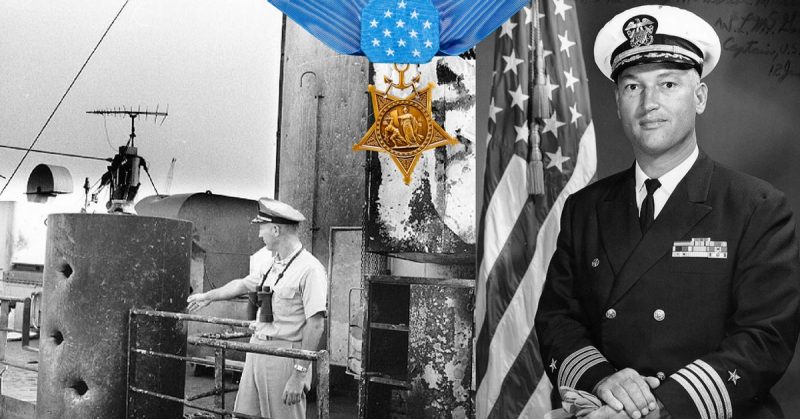The United States and Israel have not always seen eye to eye, but they have been nothing less than strong allies since the Israeli State was founded in 1948. So while it might seem odd to ponder a US Navy ship coming under attack from Israel, that is precisely what happened in 1967 to the USS Liberty commanded by Captain William McGonagle.
It occurred against the backdrop of the Six-Day War between Israel and Egypt and by the time it was over, 34 US servicemen had been killed and over 170 wounded. And while controversy about the attack exists to this day, both Israel and the United States acknowledge it as a tragic error.
But when the bullets are raining down and torpedoes are in the water, all that mattered to Captain McGonagle was keeping the ship afloat and as many men alive as possible. For his actions that day, he would be awarded the nation’s highest military honor from an incident that never should have occurred.
The USS Liberty
William McGonagle was born in 1925 and after high school and a little college, he enlisted in the Navy in 1944. Although World War II was still in full steam, he participated in a Navy training program at the University of Southern California that would eventually lead to a commission as an officer in 1947.
In the postwar years, he served in a variety of positions which included a tour on the USS Kite minesweeper ship during the Korean War. And while that gave him a little taste of action, his combat experience would be mostly defined in the middle of a war of which the United States had no part.
In 1966, he took command of the Belmont-class technical research ship USS Liberty. And while the public mission of these technical research ships was to conduct research into atmospheric and communications phenomena, it was for all technical purposes a ship design to intercept electronic communications from foreign nations.
Because it was widely known that the ships were essentially “spy ships,” there’s always been great deal of controversy around the Israeli attack and whether or not Israel knew full well what they were doing.
As the Six-Day War broke out in June 1967, the USS Liberty was dispatched to collect signals intelligence off the coast of both Egypt and Israel. Due to the hostile nature of the waters, it is reported that Capt. McGonagle asked the United States 6th Fleet for destroyer escort.
However, he was told that the USS Liberty is a clearly marked American ship and no reasonable person be they Israeli or Egyptian would have any reason to attack. In another unfortunate mistake, a message intended to direct the USS Liberty to increase its distance off the coasts of these two warring nations was delayed and not delivered until well after the attack had already taken place.
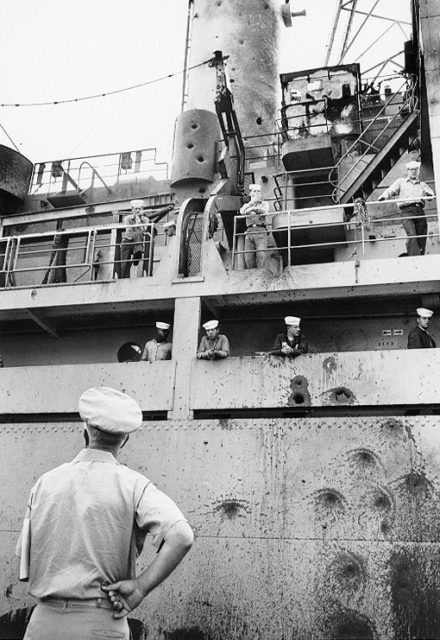
The USS Liberty conducted its mission as previously ordered and on June 8, 1967, one the most tragic military misunderstandings between two Allies took place in the Eastern Mediterranean off the coast of Sinai.
Attack from Air and Sea
General Yitzhak Rabin of the Israeli Defense force had made it clear that Israel would take all actions deemed necessary to protect its coast. However, a series of miscommunications early on the morning of June 8 led to what was a clearly marked American ship being labeled on maps as unknown and potentially hostile.
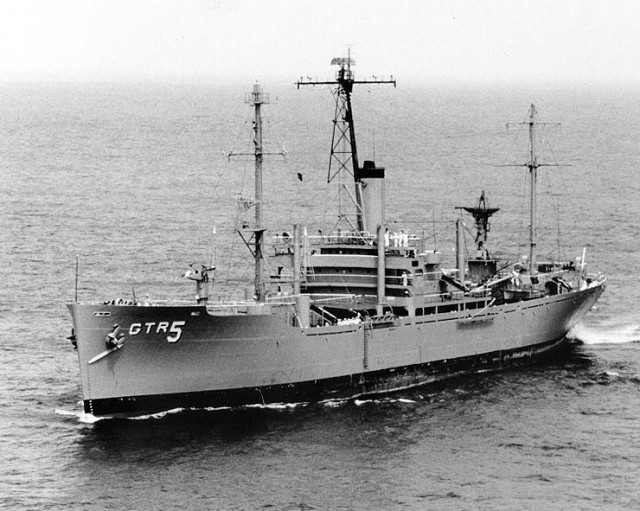
The problem was exacerbated by reports of an Egyptian ship shelling the coast of Israel. Around 2 PM local time, the uncertainty had reached critical mass and an approval for an attack on the American ship was given.
Two Israeli Mirage jet attack aircraft dived down on the ship firing 30 mm cannons and rockets catching the crew of the USS liberty completely by surprise as the attack began.
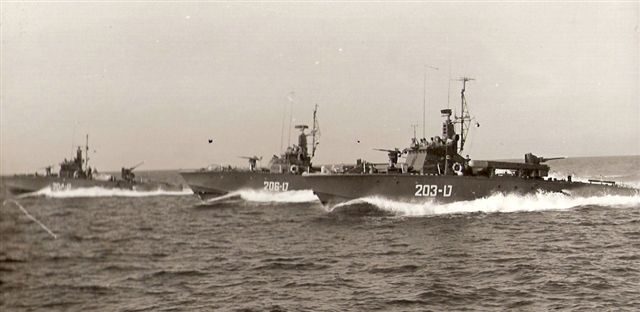
Unfortunately for the USS Liberty, they were only armed with 4 .50 caliber machine guns and hopelessly outmatched under such an attack. In the meantime, Capt. McGonagle was one of the men wounded during the initial wave of the attack taking hits to his arm and leg. Although the bridge was heavily damaged, McGonagle refused to leave and seek medical attention while the attack was still ongoing.
He continued to direct damage control, maneuver the ship, and ascertain who was doing the shooting all while bleeding heavily. Once the Mirages ran out of ammunition, they were replaced by two Dassault Mystere aircraft armed with napalm. Their attack set the deck of the USS Liberty ablaze and the ship was engulfed in smoke and flames.
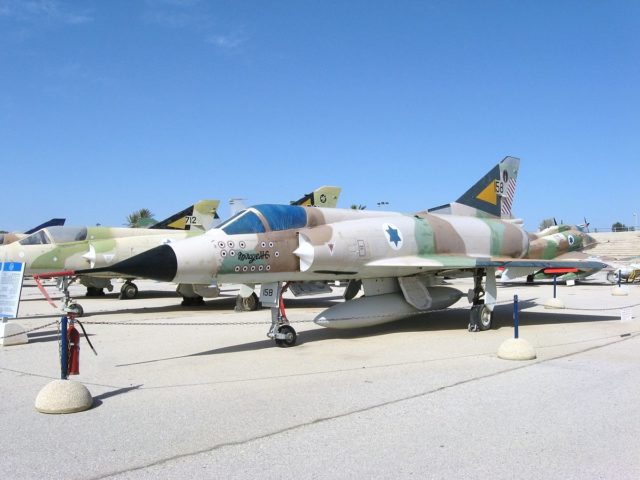
As if it were not bad enough, that is when the Israeli torpedo boats arrived. Throughout the attack, there were several delays where the Israelis held off as they were perplexed by the lack of return fire from the USS Liberty.
When the torpedo boats arrived, the smoke engulfing the ship made physical identification all the more difficult. As a result, the torpedo boats were given clearance to fire and sent five torpedoes heading directly towards the USS Liberty. Fortunately, only one made contact but for a ship which had already endured so much, that was enough.
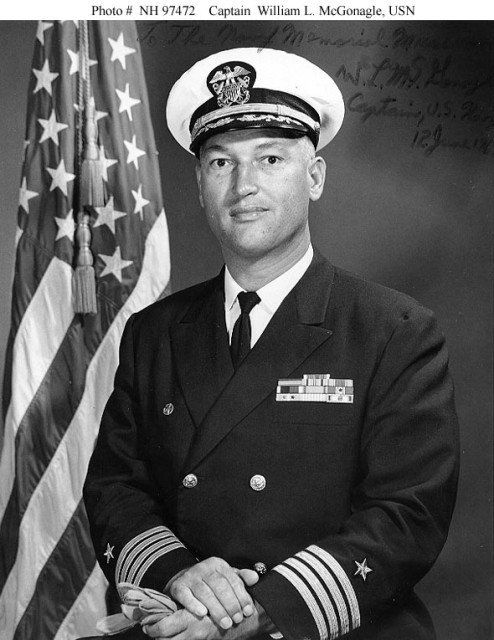
An International Incident
Despite being heavily damaged, Capt. McGonagle was able to rally the crew and salvage the ship from sinking. It was after the torpedo attack that Israel became clear about who it was they were attacking and ceased fire. The torpedo boats returned to offer assistance which was less than politely refused by the American ship.
Over 30 men were dead and 170 wounded in an attack that never should’ve occurred in the first place. Capt. McGonagle maintained command of his ship despite bleeding heavily until a US destroyer arrived to offer assistance.
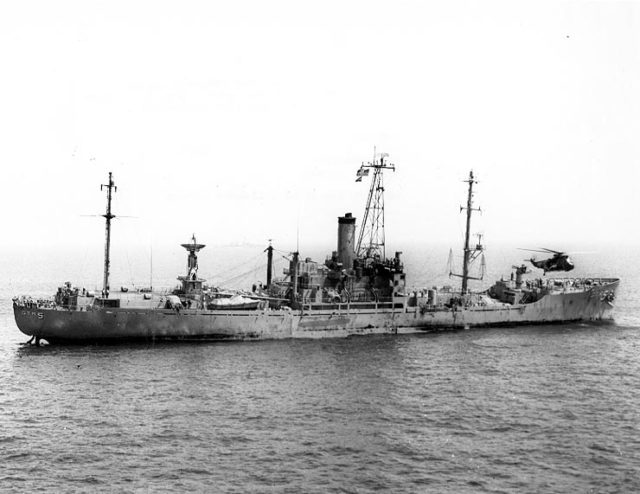
Capt. McGonagle was placed in an impossible scenario to do anything other than fight for the lives of the men on his ship as best he could. For his actions that day, he was awarded the Medal of Honor. Israel offered an apology for the mistake and later financial compensation for those involved.
Officially, the United States accepted the apology and the story that this was a mistake of human error. However, many in the government and the public had a hard time believing that Israel could have made this large a mistake given the multiple opportunities it had to clearly identify the ship.
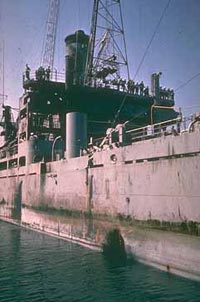
It’s not always possible for the man to pick the conflict he wants as it is often just required to fight the one that comes to you. Capt. McGonagle displayed poise and gallantry in combat that had rarely been seen since the great naval conflicts of World War II.
He would go on to serve in the Navy until 1974 and rise to the rank of Captain as a hero of the war of which his nation was not even a part.
